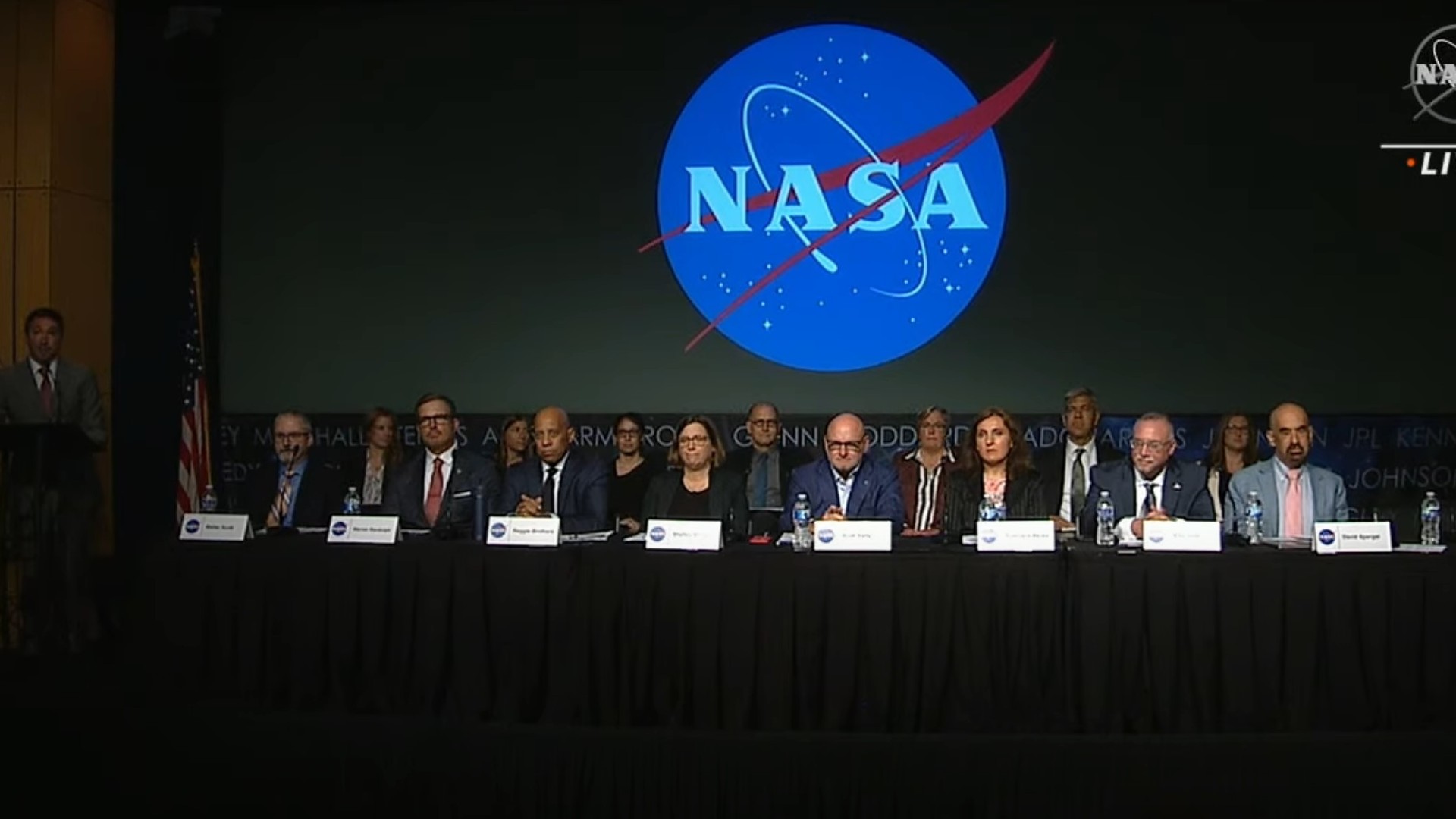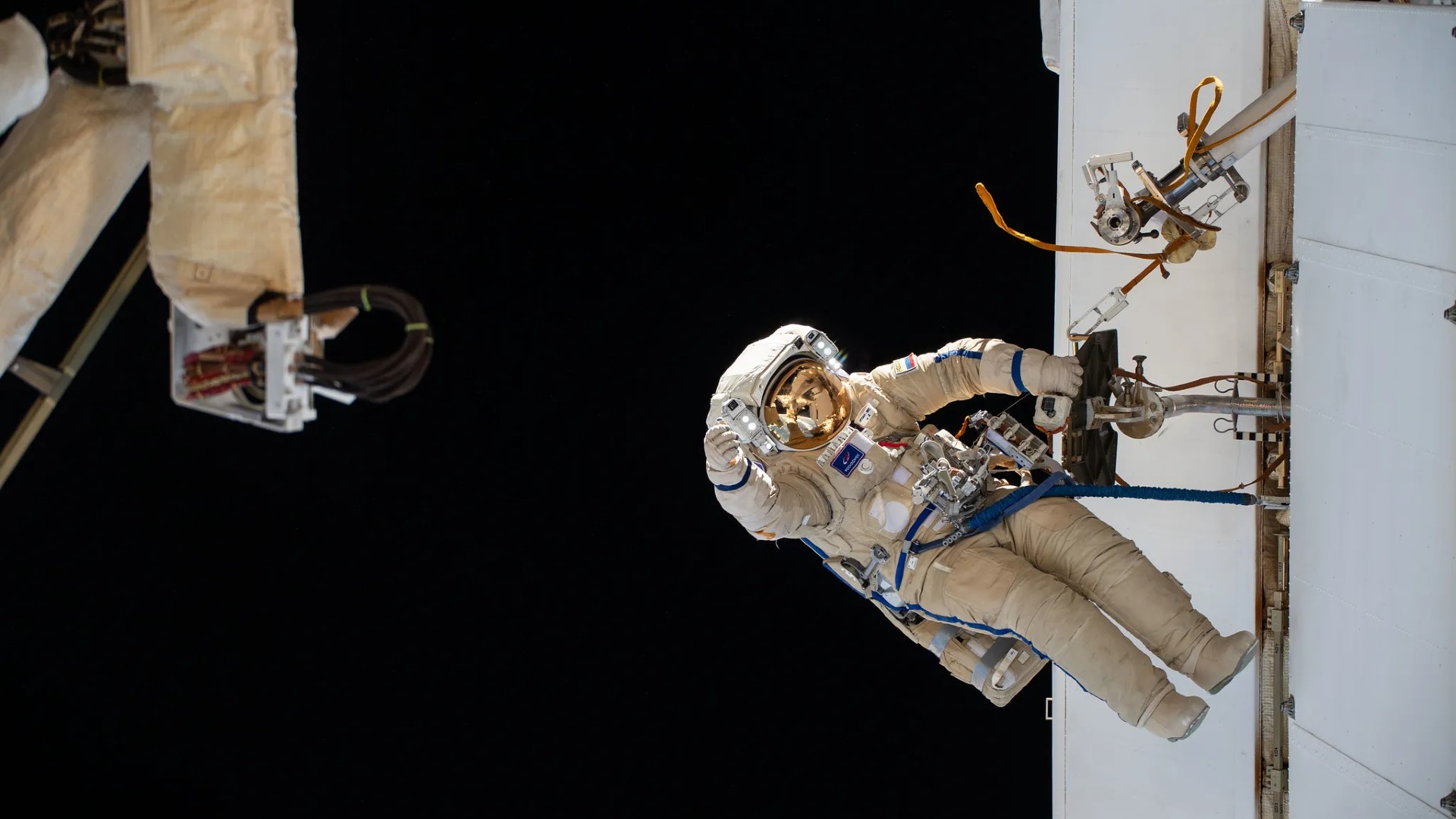UFOs will remain mysterious without better data, NASA study team says
'This work is in our DNA.'

Breaking space news, the latest updates on rocket launches, skywatching events and more!
You are now subscribed
Your newsletter sign-up was successful
Want to add more newsletters?

Delivered daily
Daily Newsletter
Breaking space news, the latest updates on rocket launches, skywatching events and more!

Once a month
Watch This Space
Sign up to our monthly entertainment newsletter to keep up with all our coverage of the latest sci-fi and space movies, tv shows, games and books.

Once a week
Night Sky This Week
Discover this week's must-see night sky events, moon phases, and stunning astrophotos. Sign up for our skywatching newsletter and explore the universe with us!

Twice a month
Strange New Words
Space.com's Sci-Fi Reader's Club. Read a sci-fi short story every month and join a virtual community of fellow science fiction fans!
NASA held the first public meeting to discuss the findings of its UAP independent study team Wednesday (May 31).
The group, formed in June 2022, aims to examine data related to unidentified anomalous phenomena (UAP), a new term that encompasses objects or incidents in the sky, underwater or in space that can't be immediately identified. The group, which has $100,000 in funding, includes former astronaut Scott Kelly and 15 other investigators from a wide variety of fields including astronomy, oceanography and even journalism.
During a post-meeting teleconference, astrophysicist David Spergel, chair of the study group and former member of the NASA Advisory Council, compared the study of UAP to fast radio bursts (FRBs), powerful bursts of radio waves from distant galaxies that were originally thought to be anomalies. "Sometimes anomalies are really interesting and point to novel physical phenomenon. And I think there's a number of interesting lessons learned there," Spergel told Space.com. "You have to decide figure out ways in which you can do dedicated observations and optimize your observational strategy to be able to do that. And I think that's, as we think about UAPs, I think we're informed by previous successes and identifying anomalies."
Related: How big a deal is NASA's new UFO study?
During the opening remarks in Wednesday's hearing, team members stressed that the biggest roadblock in terms of understanding these unidentified phenomena is a lack of data. Nevertheless, NASA's Daniel Evans, assistant deputy associate administrator for research within the agency's Science Mission Directorate, noted that, because public interest in UAP is at a seeming all-time high, it is NASA's responsibility to give the topic the "rigorous scientific scrutiny" it deserves. "First and foremost, it provides an opportunity for us to expand our understanding of the world around us," Evans said. "This work is in our DNA."
Evans stressed that the study is first and foremost about gaining a larger understanding of what is in the air and making the skies safer. "It's this nation's obligation to determine whether these phenomena pose any potential risks to airspace safety," Evans said.
Nicki Fox, associate administrator for NASA's Science Mission Directorate, said that the UAP independent study team was commissioned "to create a roadmap on how to use the tools of science to evaluate and categorize the nature of UAPs going forward. This roadmap, of course, will help the federal government obtain usable data to explain the nature of future UAPs."
Breaking space news, the latest updates on rocket launches, skywatching events and more!
Fox noted, however, that accessing high-quality data is difficult because the sensor platforms used to capture data are often classified.
"If a fighter jet took a picture of the Statue of Liberty, then that image would be classified not because of the subject in the picture, but because of the sensors on the plane," Fox said.
She stressed the need for high-quality unclassified data, which "make it possible for our team to communicate openly to advance our understanding of UAP not only with each other, but across the scientific community and to the public."
Spergel echoed that sentiment, adding that the "current data-collection efforts regarding UAPs are unsystematic and fragmented across various agencies, often using instruments uncalibrated for scientific data collection."
Sean Kirkpatrick, director of the Pentagon's All-Domain Anomaly Resolution Office (AARO), agreed, saying that, while most UAP reports the office reviewed are easily explained, some do still remain unresolved "primarily due to a lack of data associated with those cases."
One of the more disheartening moments in the opening statements came as both Fox and Evans pointed out that many members of NASA's UAP study group have been subject to harassment as a result of their involvement.
"A NASA security team is actively addressing this issue," Evans said. "We at NASA are acutely aware of the considerable public interest in UAP. However, it's critical to understand any form of harassment towards our panelists only serves to detract from the scientific process, which requires an environment of respect and openness."
During the post-meeting teleconference, Spergel added that it's vital to remain grounded in the scientific study of UAP based on the available data and without leaping to unfounded conclusions. "To make the claim that we've seen something that is evidence of non-human intelligence, it would require extraordinary evidence," Spergel said. "And we have not seen that. I think that's important to make clear. "

Brett is curious about emerging aerospace technologies, alternative launch concepts, military space developments and uncrewed aircraft systems. Brett's work has appeared on Scientific American, The War Zone, Popular Science, the History Channel, Science Discovery and more. Brett has degrees from Clemson University and the University of North Carolina at Charlotte. In his free time, Brett enjoys skywatching throughout the dark skies of the Appalachian mountains.
